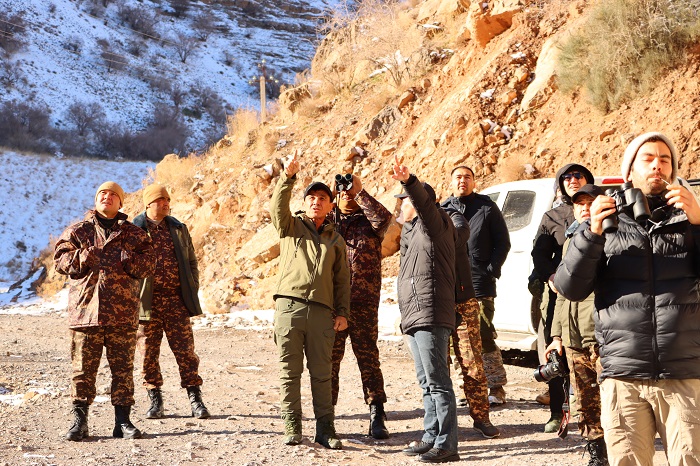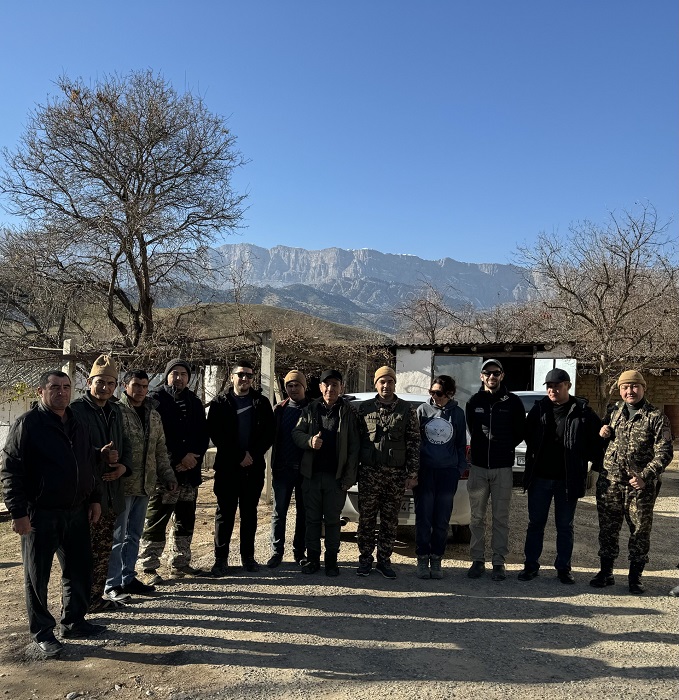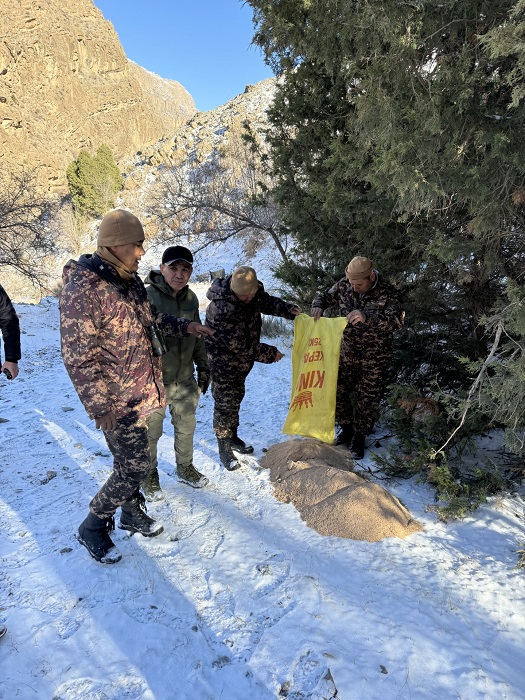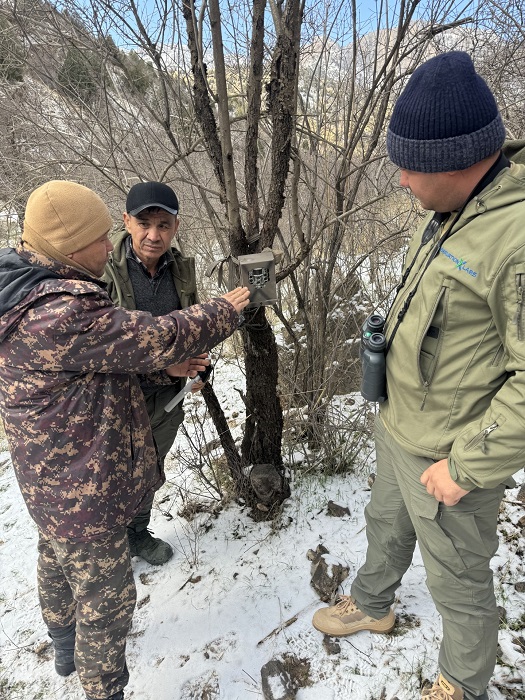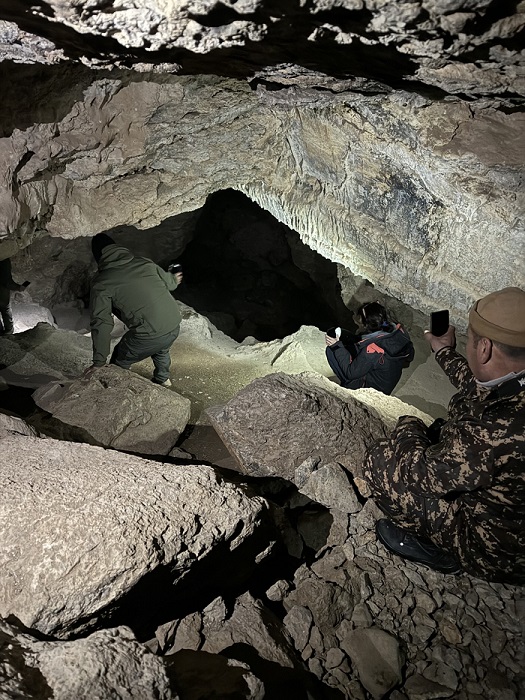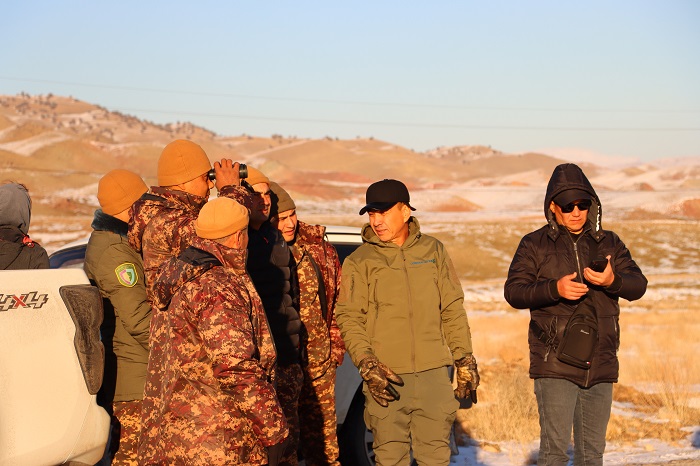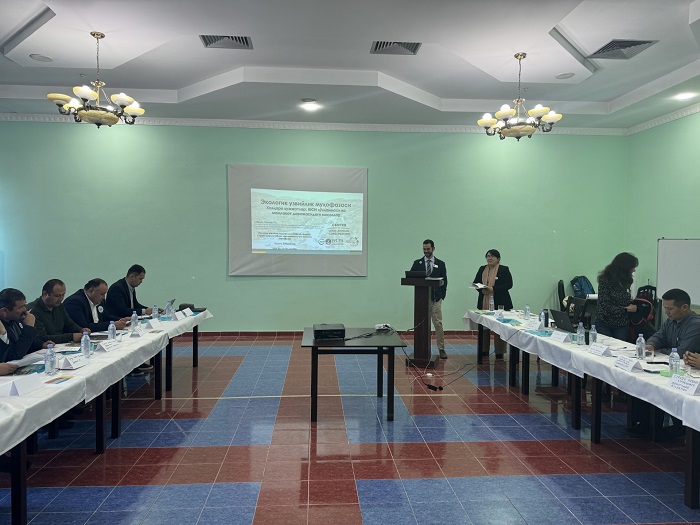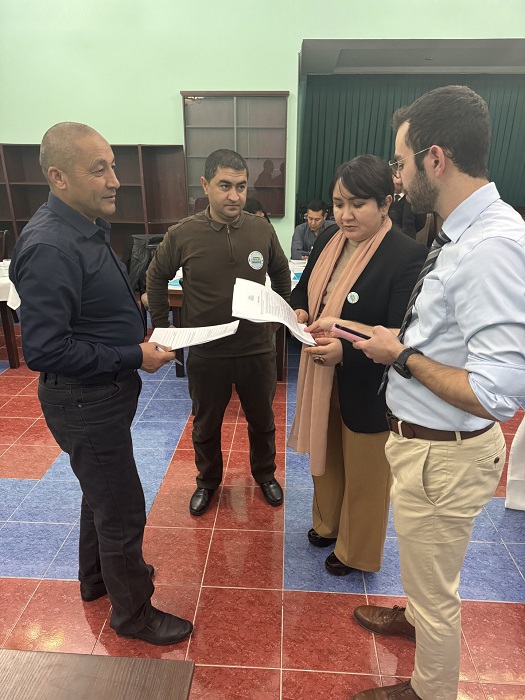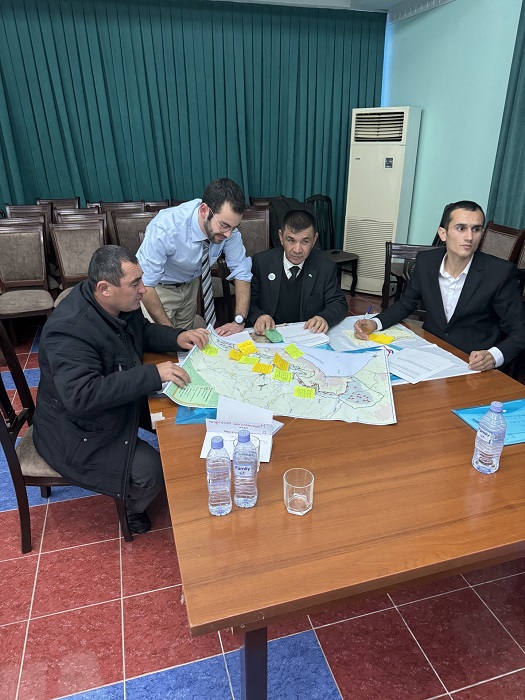From December 16 to 20, 2024, specialists from Turkmenistan undertook a working trip to Uzbekistan as part of the Center for the Conservation of Large Landscapes (CLLC) project, “Improving the potential and connectivity between the reserves of Turkmenistan and Uzbekistan.”
The trip included visits to Termez and the Surkhan State Nature Reserve.
This project, implemented under a Memorandum of Understanding and funded by the Partnership Fund for Critical Ecosystems (CEPF), receives support from the Ministry of Environmental Protection of Turkmenistan (MOE) and the Ministry of Ecology, Environmental Protection and Climate Change of the Republic of Uzbekistan.
The project aims to conserve the biological diversity of the Kugitang mountain range and facilitate a transnational nomination dossier titled “Kugitang Mountain Ecosystem” for submission to the UNESCO World Heritage Committee, achieved through collaboration with Uzbekistan.
The objectives of the working visit were:
- Exchange of expertise in the protection, inspection, monitoring of the Surkhan State Nature Reserve’s natural areas and scientific research.
- Practical application of SMART inspection techniques during field trips, including the identification and resolution of potential errors and challenges associated with SMART patrolling.
- Conduct a two-day seminar on “Preservation of connectivity (integrity) and development of ecological corridors for the Surkhan State Nature Reserve.
The working trip was attended by: Islam Annamamedov (CLLC Project Assistant), Mahmutgurban Dosov (Deputy Head of the Department of Flora and Fauna Protection of the Ministry of Agriculture), Serdar Choliev (Deputy Director of the Koitendag State Nature Reserve), Shaniyaz Mengliev (Head of the scientific Department of the Koitendag State Nature Reserve), Gabriel Oppler (CLLC International Partnership Specialist), Maria Gritsina (Institute of Zoology of the Academy of Sciences of the Republic of Uzbekistan), Sarvar Akhmedov (Ministry of Ecology, Environmental Protection and Climate Change of the Republic of Uzbekistan), as well as representatives from the Republic of Uzbekistan.
The Surkhan Nature Reserve shares a border with the Koitendag Nature Reserve, both integral parts of the single Pamir-Alai mountain ecosystem. These reserves exhibit significant overlap in animal and plant species, necessitating cross-border cooperation to safeguard these unique natural ecosystems and support migratory animal populations.
From December 16 to 18, participants undertook field trips within the Surkhan State Nature Reserve. These trips included visits to Khatak sites (Tangiduval, Khojagissar, Baglydara, and Eskikhatak bypasses) and Shalkan (Beshbulak bypass) to observe wildlife and gain firsthand experience.
As a result of the three-day monitoring, it was noted:
- more than 150 individuals of the screw goat, or markhor,
- 6 wolf species,
- 5 wild boar specimens,
- more than 20 species of Himalayan griffon ,
- 20 species of the white-headed barn owl,
- 3 bearded vulture,
- 3 golden eagles,
- 1 black vulture;
- Traces of wild boar, porcupine and other animals have been identified.
Reserve staff implemented biotechnological measures, such as feeding of wildlife, in response to sub-zero temperatures and snowfall. Existing camera traps in these areas were inspected, and measures to protect them from wild boar attacks were evaluated. Participants gained insights into fire-fighting practices and explored the Ajinakamar and Tekehana caves and grottoes.
Shaniyaz Mengliev and Gabriel Oppler provided interviews to the state television of the Republic of Uzbekistan, highlighting the trip’s objectives, the project’s goals, and the seminar’s focus.
Upon concluding the field trip, on their way to Termez, the specialists visited the Surkhan Nature Reserve’s center and scientific museum in Sherabad.
During all three days of field visits, SMART patrols were used, during which issues specific to both reserves arose. SMART inspection operators shared their experience of using and solving certain tasks.
***
On 19-20 December, a two-day seminar on “Preservation of connectivity (integrity), development of ecological corridors for the Surkhan State Nature Reserve” was held, moderated by Gabriel Oppler (CLLC).
The seminar commenced with welcoming remarks from representatives of both environmental ministries and CLLC. Subsequent presentations were delivered by invited participants and project staff.
Participants engaged in joint problem-solving within small groups, focusing on challenges related to environmental corridors. They generated innovative ideas and potential implementation strategies.
The seminar facilitated the identification of critical areas within the reserve, buffer zone, and surrounding territories, along with potential solutions to address identified issues.
Additionally, discussions centered around the planned transnational nomination of the Koitendag and Surkhan nature reserves for inclusion in the UNESCO World Natural Heritage List. As this nomination process is currently underway within the CLLC project framework, follow-up activities were outlined and discussed.///nCa, 28 December 2024 (based on information prepared by Islam Annamamedov, CLLC Project Assistant, photo credit – I. Annamamedov).
